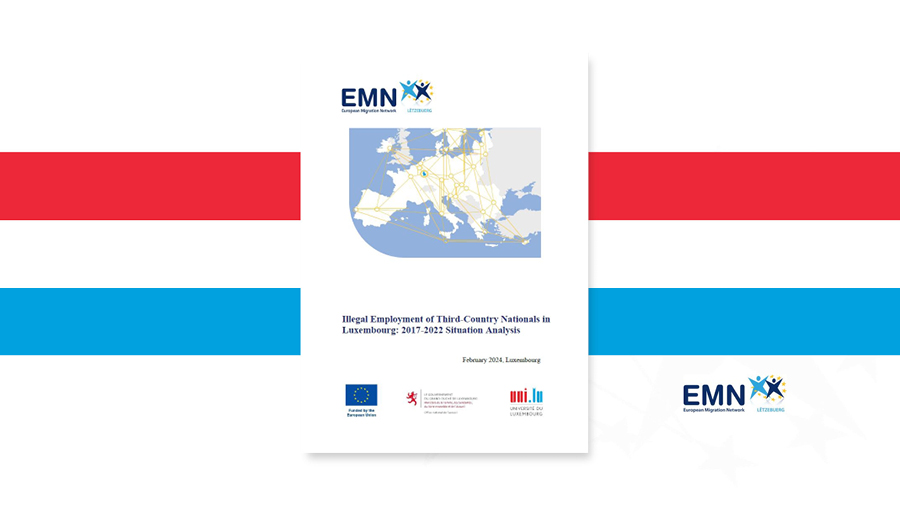NB! Please note the reporting period of this study, which is 2017-2022 ! As indicated in the last paragraph below, the most significant amendment to the law took place after the reporting period, namely in September 2023.
More specifically, on 1 September 2023, the Law of 7 August 2023 modifying 1° the Labor Code; 2° the Immigration Law; 3° the amended Law of 18 December 2015 relating to the reception of applicants for international protection and temporary protection entered into force.
This law amended several dispositions relevant to the topic of this study, see particularly Q4 of the study for more information.
Please be aware of these changes if you are looking for information concerning the situation in Luxembourg.
The policy regarding the employment of third-country nationals has remained the same in Luxembourg since the last EMN study published in 2017. The aim is to sanction employers who illegally employ third-country nationals residing irregularly, while at the same time protecting the employees concerned. The prevention of illegal employment remains a national priority for Luxembourg and has recently been subject of public debate, as well as subject of developments with regards to practice and legislation.
In terms of changes in practice, it is worth noting that Luxembourg has made significant improvements regarding the recruitment of additional labour inspectors and the increase in labour inspections during the reporting period of this study (2017-2022). While all consulted stakeholders acknowledged these improvements, they also agreed that even more progress is needed regarding an increase of labour inspections and the recruitment of even more labour inspectors to better prevent and identify illegal employment of third-country nationals.
The most significant amendment to the law took place after the reporting period, namely in September 2023, when the Law of 7 August 2023 entered into force and increased the administrative and penal sanctions for employers who engage in the illegal employment of irregularly staying third-country nationals. This was the first amendment in this policy area since the transposition of the Employers Sanctions Directive (Directive 2009/52/EC) into the Luxembourgish Labour Code in 2012. This recent legal development seems to indicate that both the authorities and the legislator did not consider the sanctions provided for in the law to be high enough to effectively tackle the phenomenon, a view which is also shared by civil society actors. In addition, the Law of 7 August 2023 addressed the fact that the prohibition of illegal employment of third-country nationals with a valid residence permit in Luxembourg was not enshrined in the Labour Code (see answer to Q4 for more information).

